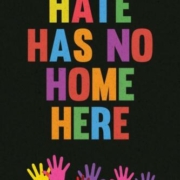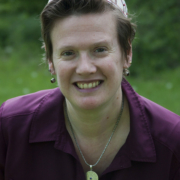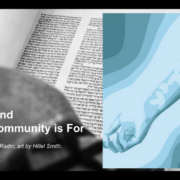We’re writing with delight to share news of a new interfaith collaboration happening at CBI.
As summer approaches and we look back at the year, it has been a very busy and exciting time at CBI. We are pleased that we’ve been able to bring back many in-person activities, including kiddushes after services, an in-person Community Seder, and much more.
“We have fallen into the place where everything is music.” These are words from the Sufi mystic poet Rumi, whose work I love. In the translations I’ve seen, he is one of the most profound spiritual poets there is. For another version of those lines, here’s how western-Mass-based folksinger Kris Delmhorst sings them: “Now we’ve come to the place where everything is music — everything is music, (so) let it play!”
Late this month we’ll reach the festival of Shavuot. When the Temple stood Shavuot was one of the Shalosh Regalim, the three big pilgrimage-festivals when we would travel en masse to Jerusalem to make offerings at the Temple. Shavuot is the culmination of the seven weeks of counting the Omer, and was once a harvest festival. (It still is, among Jews who farm.) But today Shavuot is best known as the holiday when we celebrate receiving Torah at Sinai.
“…If we’re feeling uncertain about how we’re going to get to a better place than this, we’re in synch with our ancient spiritual calendar. The story of the Exodus is one of venturing into the unknown. It’s a story of stepping into the sea, not knowing whether or how the waters would part. I take heart in remembering that now, as then, we don’t have to cross the sea alone….”
This year, the b-mitzvah students and I are studying Jewish values. At the start of the school year we focused on teshuvah, repentance or return — the value at the heart of the Days of Awe. After that, we began a unit on b’tzelem Elohim: the idea that we are all made in the image of God.
I have just returned from the General Assembly of the Jewish Federations of North America (JFNA), where 1,800 professionals and lay leaders met to discuss some of the critical issues facing our Jewish communities, locally and worldwide. I learned how people think about some of the significant issues facing us, whether we live in a smaller community, like the Berkshires, or a larger one. It was inspiring to meet with committed leaders from so many places.
As we approach the High Holy Days, we’ve entered a period of reflection and assessment. In addition to my own personal reflections, I am also very aware of the passing of one year and the beginning of the next in the communal life of Congregation Beth Israel. With a year under my belt as president, it is a time when I reflect both on what has gone well and what more we need to or can do.
I emerged from Shabbat to the news of the horrific shooting at a grocery store in a predominantly Black neighborhood in Buffalo. The shooter was motivated by racial hatred and by the so-called “great replacement theory” – the belief that Jews are orchestrating a “replacement” of white Americans with people of color. That same argument has motivated many shootings in houses of worship and elsewhere.

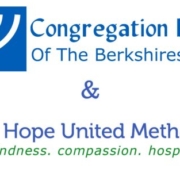
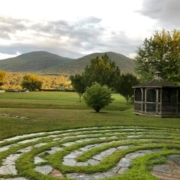
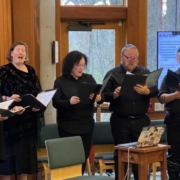 Photo courtesy of Len Radin
Photo courtesy of Len Radin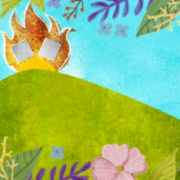 https://www.sefiracreative.com/
https://www.sefiracreative.com/